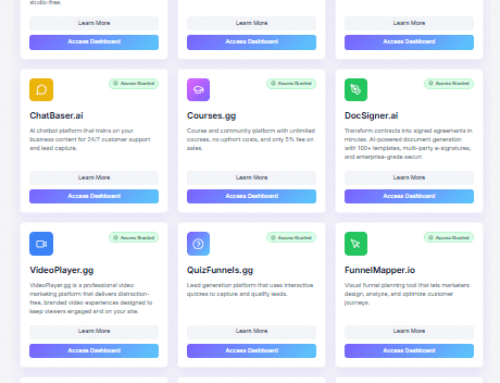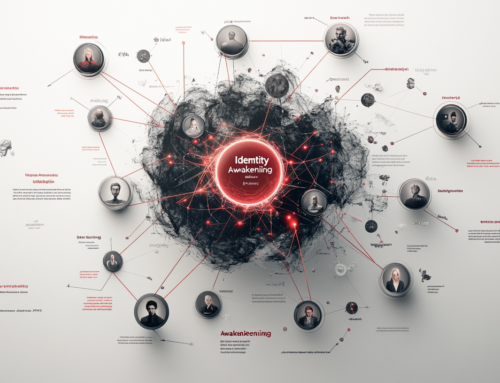“Doing well with money has little to do with how smart you are and a lot to do with how you behave.”
— Morgan Housel
Money isn’t just about numbers. It’s about stories, emotions, and beliefs — about what we feel money means. And that’s why so many talented creators and solopreneurs still struggle with it.
In The Psychology of Money, Morgan Housel doesn’t teach investment formulas — he teaches financial behaviour. He reveals how wealth is more emotional than mathematical, how success depends more on mindset than markets, and how freedom — not status — is the real goal.
Let’s explore the key principles from the book and how they can be applied to the IMMachines philosophy of simple systems, conscious creation, and long-term freedom.
1. It’s Not About IQ — It’s About EQ
The biggest myth about money is that intelligence guarantees wealth.
Housel reminds us that behaviour beats brilliance. Financial success depends on consistency, restraint, and patience, not forecasting or timing markets.
For solopreneurs, this means:
-
You don’t need to be a “marketing genius” to build wealth.
-
You just need a repeatable system that lets you show up steadily over time.
-
Your emotional discipline — not your talent — determines your bank balance.
At IMMachines, this principle underpins every GPT we create: systems that help you act consistently, not impulsively — whether you’re publishing, selling, or learning.
2. Luck, Risk, and the Invisible Hand of Timing
Housel makes a profound point:
“Nothing is as good or as bad as it seems.”
Behind every success story is a hidden mix of luck and risk. Bill Gates went to one of the few schools in the world with a computer. A friend of his with equal skill wasn’t so lucky — and his story vanished into obscurity.
In your creator business:
-
Luck may open doors, but systems keep them open.
-
Risk can’t be eliminated — only managed.
-
The real power lies in playing long games with short steps.
IMMachines calls this “The 1K Ladder” — your sequence of small, compounding wins that stack into stability. Don’t bet your life on one “viral” moment. Build a system that survives the bad days and compounds the good ones.
3. Enough: The Fine Line Between Ambition and Anxiety
“The hardest financial skill is getting the goalpost to stop moving.”
Modern creators live in a world of infinite comparison — always one click away from someone richer, flashier, or faster.
But wealth is relative. If you always want more, you’ll always feel poor.
Ask yourself:
-
How much is “enough” for you?
-
What level of income, freedom, and impact would actually satisfy you? This can change with time but the exercise is well-worth doing.
Define that, and you’ve already won.
In IMMachines terms, this is your Freedom Metric — the point where you can live, create, and serve without financial fear.
4. Saving Is Freedom, Not Frugality
“Wealth is what you don’t see.”
Housel’s favourite example: the millionaire who drives a modest car versus the debt-ridden professional showing off a luxury one. The real wealthy aren’t performing wealth — they’re storing it as freedom.
I once had two wealthy clients who both hid their wealth – one drove a mini-metro to clients looking like a monster behind the wheel of the small car (whilst he had a garage with 4 or 5 beautiful cars at home including Eric Claptons Ferrari) and the other, a builder, had an ‘Inspector Clouseau’ type battered van and was dressed in t-shirt, shorts and boots without laces and a shaggy black beard. Both delighted in their incognito disguises!
It taught me to never judge a book by its cover.
For solopreneurs:
-
Save not for stuff, but for space.
Space to think, rest, pivot, and say “no.” -
When you save, you’re buying time — the currency of true creativity.
That’s why IMMachines encourages creators to automate income through digital assets — books, courses, GPTs, templates — that generate margin in your life. Margin equals choice. Choice equals peace.
5. Compounding: The Eighth Wonder of the Solopreneur World
Einstein called compounding the eighth wonder of the world — and Housel shows why it’s the quiet hero of wealth.
Small returns, repeated over long periods, beat big wins followed by burnout.
For creators, compounding looks like:
-
One blog post that drives traffic for years.
-
One lead magnet that keeps building your list.
-
One good offer refined, not reinvented.
At IMMachines, we call this “the Evergreen Flywheel.” Every system you build feeds the next — content → audience → offers → freedom. The trick is to stay in the game long enough for the math of time to work in your favour.
There are plenty of stories of businesses with little or no traffic before suddenly they take off with one viral piece of content! They hit a vein of content that interests their audience and then mine it to the maximum extent. See below.
6. Tails Drive Everything
“A small number of events drive the majority of outcomes.”
In investing, a few “home runs” make up for many misses. The same applies to creativity.
Most content flops. Most ideas fade.
But one or two can change your entire trajectory.
So the creator’s strategy isn’t to avoid failure — it’s to keep swinging. To produce enough at-bats that the tails — the rare wins — can appear.
That’s why IMMachines tools (like the Content Repurposer Pro and Sales Angle Generator) are built to increase your surface area for luck. You can’t predict which idea will explode, but you can systemise your output so the odds stack in your favour.
7. Freedom Is the Highest Dividend Money Pays
“The ability to do what you want, when you want, with whom you want, for as long as you want, is the highest dividend money pays.”
For creators, this isn’t just poetic — it’s practical. Freedom is the ROI of alignment: when your income reflects your purpose.
That’s the mission behind IMMachines — giving solopreneurs AI leverage to earn on their terms.
Freedom isn’t a fantasy. It’s a design problem.
Ask yourself:
-
What systems could give me a 4-hour creative day instead of an 8-hour hustle?
-
What could I automate, delegate, or digitise to reclaim control of my time?
Freedom compounds just like money — start small, systemise early. (Hint: All our GPT’s are mini-systems!)
8. Man in the Car Paradox
“No one is impressed with your possessions as much as you are.”
We buy things to signal success — but no one cares. They’re too busy chasing their own signals.
True wealth is quiet.
This lesson hits home for many mid-life solopreneurs: the shift from showing success to feeling it.
It’s not about flexing — it’s about fulfilment.
And fulfilment comes from creating something valuable, not performative.
At IMMachines, that’s why we teach creators to focus on impact systems, not vanity metrics. You don’t need 100,000 followers — just 100 true fans who trust you.
9. Reasonable > Rational
Housel says we don’t need to be perfectly rational — just reasonably consistent.
Markets aren’t math; they’re people. So the most successful strategies are the ones you can actually stick with.
The same applies to creative business.
-
Don’t build a funnel so complex you’ll never update it.
-
Don’t set goals so extreme you’ll burn out.
-
Choose the boringly effective path you’ll actually follow.
Reasonable actions, done daily, outperform brilliant plans never executed.
That’s why IMMachines favours modular GPT systems — easy to deploy, easy to improve, easy to repeat.
10. Surprise! The Future Will Surprise You
“History is one damn thing after another.”
The world changes fast — and what “worked” once might not tomorrow. But that’s okay.
The solution isn’t prediction — it’s adaptability.
For creators, this means:
-
Stay curious, not certain.
-
Keep your systems flexible.
-
Treat experiments as education, not evaluation.
When the landscape shifts (as AI is doing right now), those who adapt — not those who resist — will thrive.
IMMachines is built on that principle: tools that evolve as technology does, letting creators ride the wave, not drown under it.
11. You and Me: Different Games, Different Goals
Housel warns that copying others’ strategies is financial suicide. Everyone plays a different game with different timelines, tolerances, and goals.
Likewise, your creator business isn’t meant to mirror someone else’s.
You might be playing the Freedom Game, while they’re playing the Status Game.
Define your own scoreboard:
-
How much do you want to earn?
-
How much time do you want to work?
-
What kind of impact do you want to leave?
Your answers form your Personal Operating System — the foundation of every IMMachines GPT we build: unique tools for unique missions.
12. The Seduction of Pessimism
Humans are wired to trust bad news more than good. “Things are getting worse” sounds smarter than “things are getting better.”
But over long timeframes, progress wins. Creativity, innovation, and adaptation always rise from chaos.
In your creator journey:
-
Don’t confuse volatility with failure.
-
Don’t let fear freeze momentum.
-
Keep building your system even when the metrics wobble.
IMMachines calls this Antifragile Creation — building in ways that grow stronger through uncertainty. Every dip is data. Every detour builds depth.
We will shortly go through a period of chaos as we exit from the existing fiat currency system based on debt and money printing/inflation and transition to a new asset-backed Quantum Financial System. There will be a massive explosion of wealth and abundance for those that anticipate and position themselves intelligently in the new system. I am currently anticipating a large rise in the price of precious metals, like silver and gold, and have positioned my self accordingly about 10 years ago – only recently has this strategy begun to look intelligent because I did think the changes to the system would happen faster than they have!
13. Wealth Is What You Don’t See
If you have to show it, you don’t really own it.
Real wealth is quiet confidence, not loud consumption.
For creators, this translates into owning your assets — your content library, email list, automations, and offers — instead of chasing borrowed reach on social platforms.
IMMachines systems are designed for ownership:
-
You control the audience.
-
You control the offers.
-
You control the outcomes.
Quiet creators. Loud results.
Relying on other peoples software platforms is risky so back-up your data on a regular basis in case you are forced to leave a platform and check what planning has been done by any platform you rely on with regards to back-ups and succession planning. In particular keep a back-up on your computer of your list!
14. Save Like a Pessimist, Invest Like an Optimist
Housel’s advice:
“Plan like a pessimist and live like an optimist.”
In other words — expect storms but bet on spring.
As a solopreneur:
-
Build a cash buffer (3–6 months of expenses).
-
Keep your business lean and simple.
-
But also invest time in bold experiments — offers, GPTs, systems — that can multiply your freedom.
That balance — caution + courage — is what keeps the long game alive.
15. The Paradox of Control
The more you try to control every detail, the less control you feel.
Letting go, paradoxically, gives you power.
Instead of trying to control outcomes, control your process:
-
Your routines.
-
Your systems.
-
Your creative inputs.
When your process is right, the results take care of themselves.
That’s the IMMachines mindset: design repeatable, aligned systems that make success inevitable over time.
16. When Enough Is Truly Enough
We circle back to Housel’s quiet truth:
“Enough is realising that if you never have enough, you’ll never be enough.”
Freedom begins when you stop trading peace for “more.”
And that’s where every solopreneur must eventually arrive: working not for escape, but for expression.
When money stops being the master and becomes the mirror — reflecting your creativity, purpose, and discipline — you’ve mastered the psychology of money.
The IMMachines Interpretation: Turning Mindset into Method
| Housel’s Principle | IMMachines Application | GPTs That Support It |
|---|---|---|
| Behaviour > Intelligence | Build repeatable systems and habits, not hype | From Chaos to Clarity GPT |
| Luck & Risk | Increase your odds through consistent content output | Sales Angle Generator |
| Enough | Define your Freedom Metric | Business Problem Solver |
| Compounding | Build evergreen assets that work while you rest | The AI List Engine |
| Reasonable > Rational | Simplify — do what’s sustainable | Daily Micro-Content Machine |
| Freedom | Design your business for time and location independence | £3K GPT |
| Antifragility | Adapt your offers and funnels with market shifts | Offer Optimiser Pro |
Each principle turns into a philosophy of creative wealth — simple systems, steady progress, long-term freedom.
Closing Thoughts: The Wealth You Can’t See
Money is just the surface.
Beneath it lies patience, self-control, trust, and clarity — the invisible architecture of true wealth.
You don’t need to chase the next big thing.
You just need to keep stacking the small, quiet wins that compound over time.
“The art of wealth,” Housel writes, “is getting rich slowly and staying rich quietly.”
And perhaps that’s the perfect mantra for creators in the AI age:
Build slowly. Create deeply. Systemise freedom.






